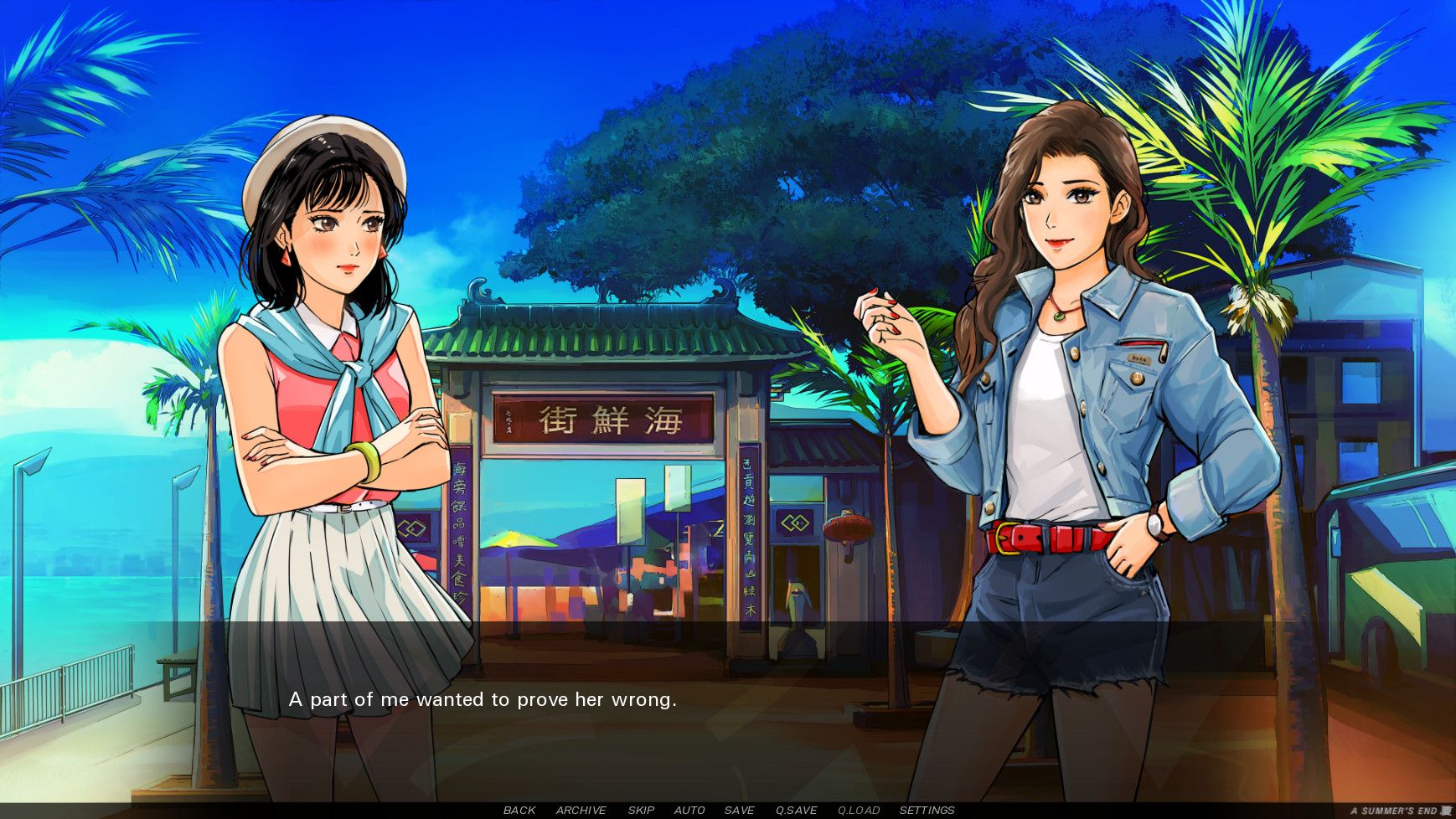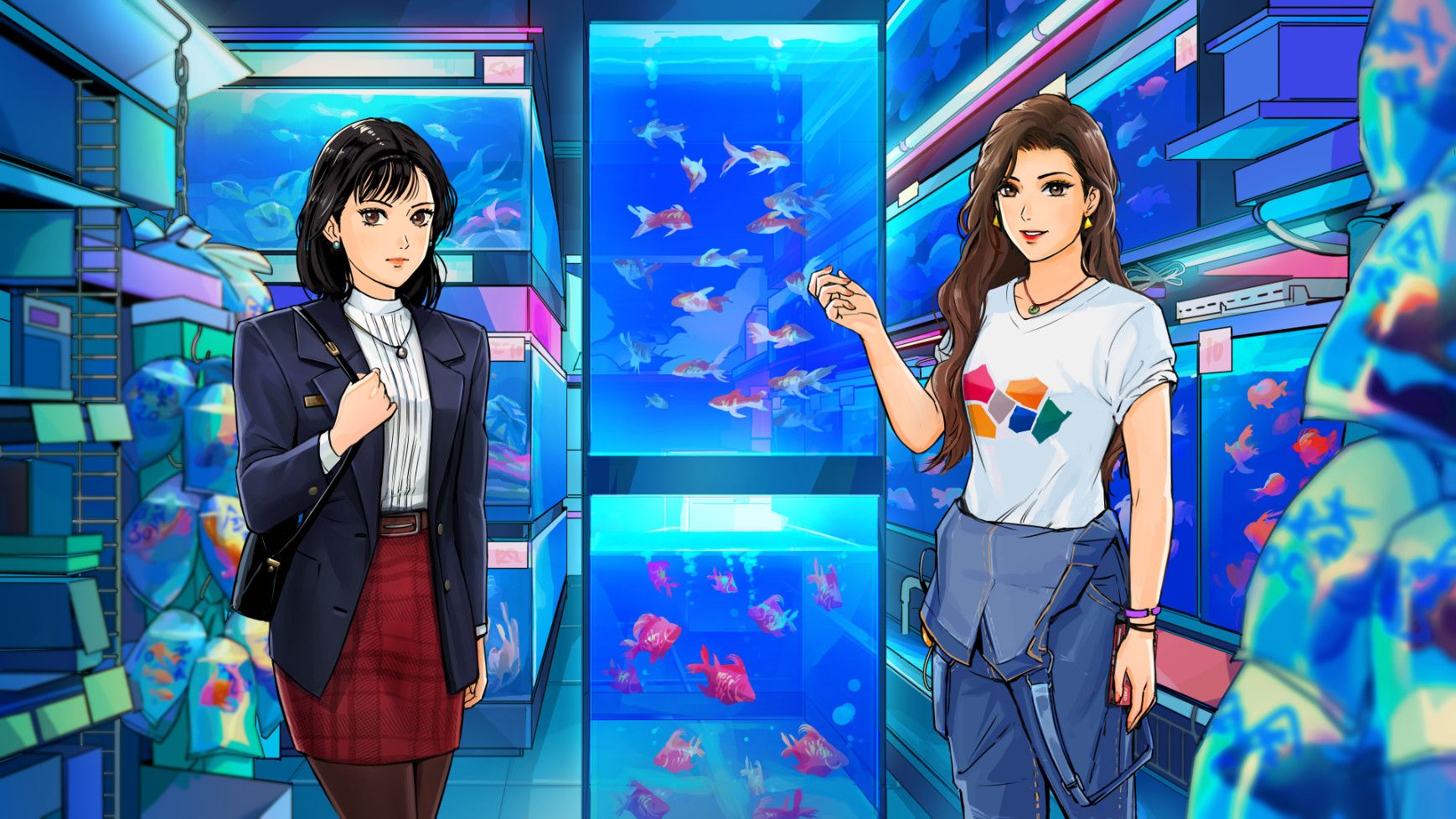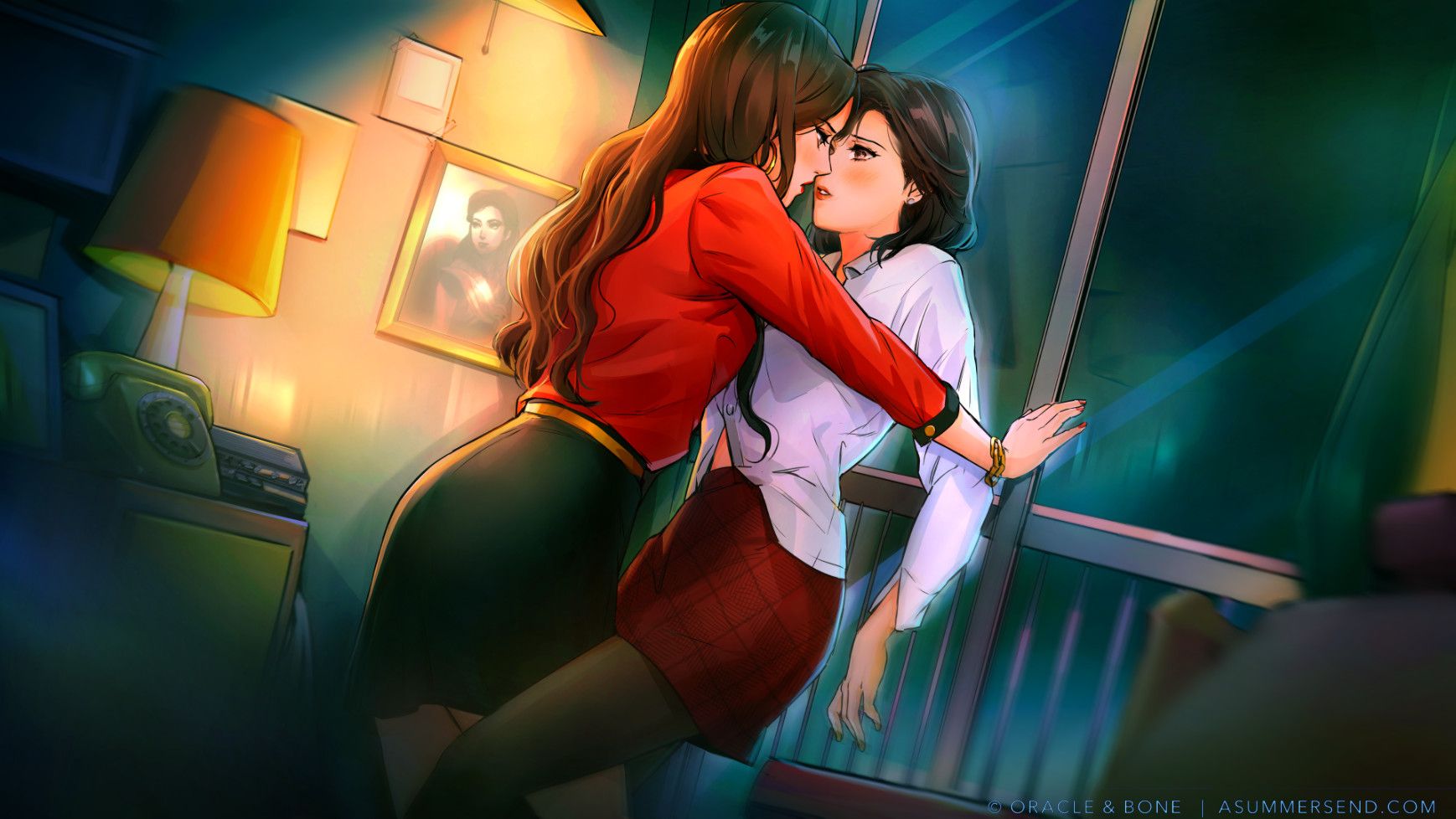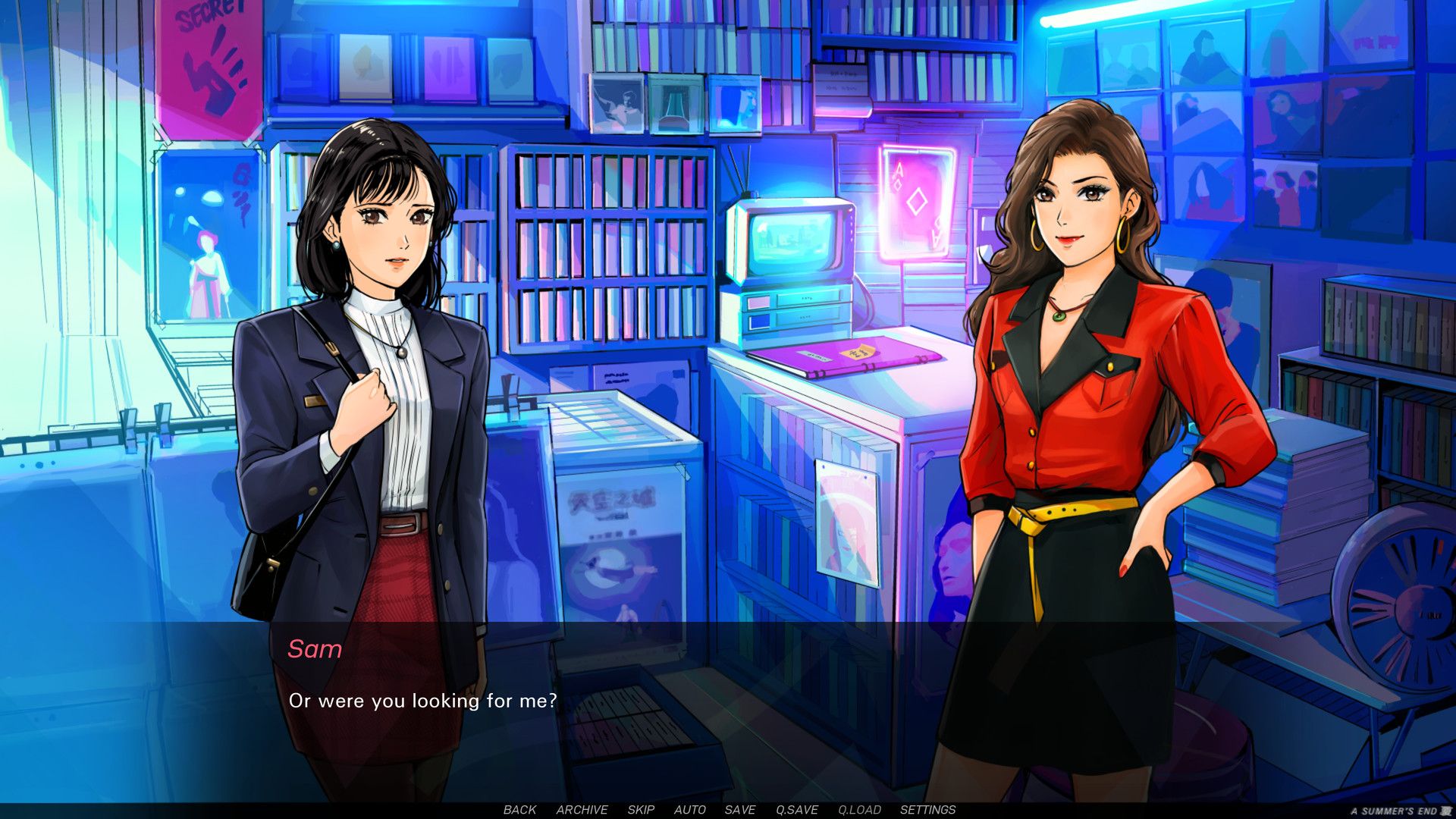Oracle and Bone’s debut game, A Summer’s End – Hong Kong 1986, is a visual novel whose title helpfully advertises the game’s premise: Hong Kong in 1986, and a chance summer encounter that leads to romance.
From the second it launches, A Summer’s End grabs you by the throat and yanks you into an unforgettable narrative experience. There’s no pretension to A Summer’s End; it promises a game about love, family, and culture, and it delivers exactly that. While the slightly-clunky script may fall a bit short of its LGBT visual novel contemporaries, the game is a must-have for visual novel fans, gaymers, and anyone who could use a taste of a summertime romance.
Mom? Do You Still Listen To Cantopop?
Let’s just get one thing clear: A Summer’s End is singularly gorgeous. I’ve played a lot of visual novels in my time, but A Summer’s End is punching in a whole other weight class. The sheer strength of its aesthetic puts it head and shoulders above other games in the genre, no competition. Artist Tida Kietsungden drew over 400 individual pieces of art for this game and every single one is nothing short of breathtaking.
The music and sound design are similarly immaculate. In addition to its original soundtrack, the game features pieces from contemporary artists such as Crystal Cola, Timecop1983, and Stevia Sphere. Together, they knock it right out of the park. The soundtrack draws inspiration from artists and music trends that were popular in Hong Kong at the time, and many of the city’s most famous stars—such as Anita Miu, who to this day still graces my mom’s YouTube history—get an in-game shoutout. I find myself opening the game just to jam out to the main theme. The original soundtrack isn’t out yet, but you can bet I won’t be the only one snapping it up as soon as it’s available.
Storytelling and Expression, Not Parasitism
A Summer’s End follows the perspective of Michelle, a young office worker whose life isn’t as together as she’d like to think it is, and the romance that blossoms after she encounters Sam, a home video store owner who knows exactly what she wants and is ready to risk it all to get it. The two women are incredibly likable, and I found myself rooting hard for them as their relationship developed. The romance itself is a quick-burn, leaving plenty of room for Michelle and Sam to explore their identities and the space they occupy in 80s Hong Kong—including their relationships with their families, which is a paramount presence throughout the game.
The story isn’t a political one—and no, gay and Asian characters living their lives don’t count as a political statement—but it tackles what it means to be gay during uncertain times, in a culture that can be very conservative. A Summer’s End does an incredible job of juggling believable chemistry and portraying homophobia and family conflict without veering into tragedy porn. The narrative never feels like spectacle or exploitation.
There’s a lot going on in A Summer’s End, but it tackles its subject material with a lot of heart, if not always with polish. The game starts slow and moves at a steady jog, and players accustomed to a more fast-paced story might find its careful, introspective lean difficult to read through. But if you’re willing to let the game take you by the hand and follow it through its winding narrative, you’ll find an earnest love story as much about personal growth and the honest joy of living as it is about romance.
So Are We Going To Talk About That, Or…
If there’s one downside to A Summer’s End—and in my opinion, it’s barely one at all—it’s that the script can be clunky. Oh, the storytelling is absolutely phenomenal as a whole, but I thought some scenes could have served the story better if we were able to see what was happening rather than have the narration tell us.
The game is also filled with people talking in true Chinese fashion, dancing around a subject so deliberately that they might as well be needlepointing a perfect outline of the elephant in the room. You wouldn’t believe it, but it’s somehow just as anxiety-inducing in a video game as it is in real life. Modern women they may be, but Michelle and Sam are not immune to the trap of oblique East Asian conversation, and people who aren’t ready to eat that with their requisite sad sapphic monologuing are going to have to buckle down.
Turning Up The Heat
A Summer’s End also includes a free adult patch which adds two love scenes to the base game. Storywise, it would be more accurate to say that the base game removes the love scenes so players can opt-in if they choose. The love scenes add more weight to the story’s themes and the narrative payoff of Michelle and Sam’s developing relationship. Having initially played the game without the patch and then doubling back for a reread, I’d heartily recommend activating it. The scenes are gorgeous, spicy, and ties together the emotional rewards of the girls getting together.
However, the story stands on its own without the patch, so players can decide for themselves the kind of experience they want.
Rewind The Tape: Let’s Go Again
Kietsungden and writer Charissa So initially began this project out of love for filmography, and that passion couldn’t be more clear. Playing through A Summer’s End felt like seeing an eagerly-anticipated movie, and while the story took twists I hadn’t quite expected, I came away with a warm heart and a whole lotta joy. The game has the same appeal as a favorite comfort movie. While some might say that visual novels don’t really have the same replay value as a roguelike or hack-and-slash, I know I’ll be coming back to A Summer’s End time and time again.
A PC copy of A Summer’s End was provided to TheGamer for this review. A Summer’s End – Hong Kong 1986 is now available on Steam and itch.io.
Source: Read Full Article




